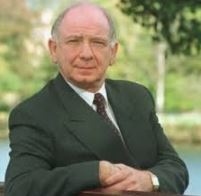Remember Brexit? That constitutional phenomenon which absorbed three years’ worth of political oxygen but has barely stimulated an utterance throughout the duration of the pandemic?
Yes, it has always been there, awkwardly lingering in our nation’s peripheral vision like an unwelcome guest at a funeral but last Tuesday was the fourth anniversary since the vote to leave.
It served as a final reminder that we have until Wednesday to apply to the EU for an extension to the transition period.
I spent last Tuesday morning talking to Jim Fairlie, the veteran Eurosceptic nationalist and former deputy leader of the SNP from 1981-84.
Mr Fairlie is now 80 and lives in Crieff but is a former lecturer on economics at Dundee College.
He also stood as the SNP candidate in Dundee West on three occasions, coming second and within fewer than 3,000 votes of toppling the sitting Labour MP in the October 1974 general election.
Describing his emotions on a drizzly Friday morning after the referendum in 2016, Mr Fairlie said: “Having campaigned to leave the EU my entire life, I was delighted Britain voted to leave but was bitterly disappointed a majority in Scotland did not.” He is scathing in his assessment of the SNP campaign to remain describing them as “deliberately dishonest” by affirming the notion that EU nations can be independent when he clearly states they are incapable of setting their own economic policy.
Mr Fairlie said: “Some point to Germany and France as prosperous nations but neither is independent because, as members of the Eurozone, they do not control their own interest rates, inflation rates or government spending.”
He is also more optimistic about the future of the economy than his peers.
He said: “After the Second World War we were a bankrupt nation but, out of that devastation, we invested in job creation, a housing boom and pioneered world-leading universal healthcare and welfare provision.”
>>Read more from Ewan Gurr here
Mr Fairlie was deputy leader to the late Gordon Wilson, who served as the Member of Parliament for Dundee East from 1974 to 1987 but he left the SNP in 1990 after 35 years of membership when it altered its stance to one of independence within Europe following the appointment of Alex Salmond as leader.
Ever since, Mr Fairlie has written about being a sovereign nation free from both the jurisdiction of Westminster and Brussels and has become a magnet for a growing band of Eurosceptic nationalists.
Given his criticism of the SNP on independence, I asked if there are any circumstances in which he would vote against independence in a future referendum, to which he emphatically responded: “No.”
However, he is optimistic that, in the event of Scotland becoming an independent nation and holding a referendum on EU readmission, the people of Scotland would oppose it.
In those circumstances, his vision of true independence would become a reality.
